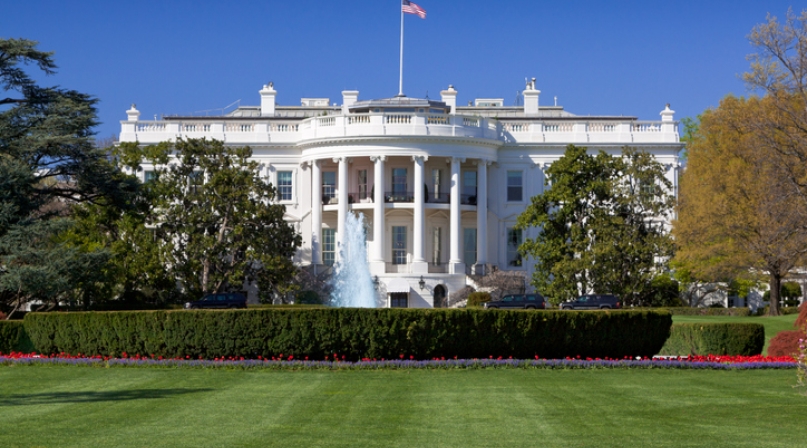President Biden signs health-related COVID-19 executive actions
Author

Blaire Bryant
Upcoming Events
Related News

Key Takeaways
During his first few days in office, President Joe Biden has signed a number of executive actions addressing the COVID-19 pandemic. The actions are diverse in scope but focus on expanding testing capacity, improving vaccine distribution and providing sufficient supplies and personal protective equipment (PPE). The executive actions are relevant to counties who are serving on the frontlines of the pandemic and indicate what counties can expect from the Biden administration’s response to the current public health emergency.
Among the most relevant health-related executive actions taken by President Biden are:
- EO on Organizing and Mobilizing the U.S. Government to Provide a Unified and Effective Response to Combat COVID-19 and to Provide U.S. Leadership on Global Health and Security establishes the position of Coordinator of the COVID-19 Response and Counselor to the President as well as the Deputy Coordinator of the COVID-19 response to coordinate the federal government’s COVID-19 response.
- EO on Ensuring a Data-Driven Response to COVID-19 and Future High-Consequence Public Threats requires federal agencies to facilitate the gathering, sharing and publication of COVID-19 related data and instructs HHS to review the effectiveness, interoperability and connectivity of public health data systems.
- EO on Establishing the COVID-19 Pandemic Testing Board and Ensuring a Sustainable Public Health Workforce for COVID-19 and Other Biological Threats establishes a COVID-19 Pandemic Testing Board to expand testing capacity and identify barriers to access for priority populations, communities with shortages, at-risk settings and high-risk groups. It also establishes a U.S. Public Health Jobs Corps to assist the pandemic response.
- EO on a Sustainable Public Health Supply Chain directs federal agencies to review the availability of critical supplies and the pricing of pandemic response supplies and to establish a Pandemic Supply Chain Resilience Strategy within 180 days.
- Memo to Extend Federal Support to Governor’s Use of the National Guard to Respond to COVID-19 and to Increase Reimbursement and Other Assistance Provided to State directs FEMA to fully reimburse states for the cost of National guard personnel and emergency supplies.
- EO on Improving and Expanding Access to Care and Treatments for COVID-19 instructs federal agencies to accelerate the development of novel therapies, provide targeted surge assistance to critical care and long-term care facilities and establish targets for the production, allocation and distribution of COVID-19 treatments to facilitate equitable and effective distribution.
- EO on Ensuring an Equitable Pandemic Response and Recovery establishes a COVID-19 Health Equity Task Force within HHS to provide recommendations for mitigating the health inequities caused or exacerbated by the COVID-19 pandemic and preventing these inequities in the future.
- EO on Promoting COVID-19 Safety in Domestic and International Travel requires federal agencies to implement mask-wearing policies in airports and on planes, trains and certain modes of public transportation. It also requires a negative COVID-19 test prior to departure and quarantine upon arrival for international travel to the U.S.
- EO on Protecting Worker Health and Safety directs OSHA to issue updated guidance on COVID-19 worker protections.
These actions all carry implications for counties as they execute their own COVID-19 response plans at the local level, and will help to provide the resources necessary for successfully providing for the health of their residents. Counties need strong federal and state partners in order to successfully respond to the pandemic and ensure the health and economic wellbeing of their residents. NACo will continue to monitor the executive actions taken by President Biden and work with his administration to help implement a COVID-19 response strategy that values the role of local governments.
County News
County News Coverage: COVID-19

Related News

HHS Secretary Kennedy touts fixes for obesity, chronic illness, mental health issues
Counties can help improve health outcomes by prioritizing prevention over treatment, Robert F. Kennedy Jr., secretary of the U.S. Department of Health and Human Services told NACo Legislative Conference attendees.

Drug tracking software helps counties identify trends, save lives
Florida counties are using an artificial intelligence tool called Drug TRAC to track and report drug trends, with the aim of providing quicker outreach and saving lives.

White House Executive Order establishes national substance use disorder response
On January 29, the White House issued an Executive Order (EO) establishing the Great American Recovery Initiative, a new federal effort aimed at coordinating a national response to substance use disorder (SUD).
